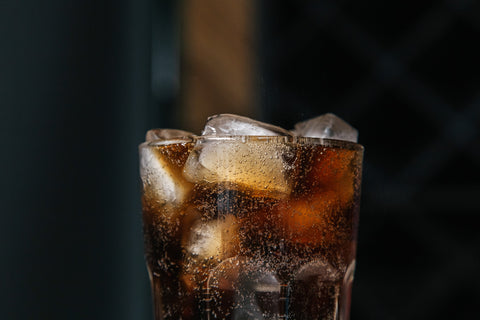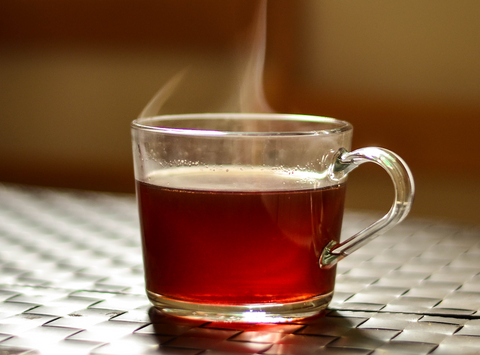Exploring the impact of caffeine consumption in youth sports reveals a complex landscape. With caffeine benefits for young athletes being a topic of increasing interest, it's crucial to understand how this intersects with Sports nutrition and caffeine. While the potential caffeine side effects in teenage athletes cannot be overlooked, establishing clear guidelines for caffeine intake in youth sports is essential for informed decisions. This article delves into these dimensions, addressing the role of caffeine in the lives of young athletes.
When you think of caffeine, your first thoughts are probably about your morning cup of coffee or the cups of tea you drink throughout the day. But did you know that it’s also one of the most readily available and commonly used sports supplements too? Claims of performance-enhancing effects are supported by lots of scientific literature and include increasing alertness and concentration and reducing fatigue. And it’s not just used by older athletes either. In fact, 83% of teenagers report regularly consuming caffeine in the form of fizzy drinks, coffee and energy drinks [2]. But is it effective in youth athletes and do these products have a place in their diet and training plan?

What is Caffeine?
Caffeine is a compound that occurs naturally in plants and is commonly found in lots of different food and drinks including cocoa, coffee, tea, fizzy drinks and energy drinks [2]. It’s a stimulant that, simply put, affects the natural fight or flight response in the body. This increases feelings of alertness and concentration and combats fatigue [1].
Does Caffeine Improve Performance?
Athletes from many different sports regularly use caffeine as an ergogenic aid (a supplement that enhances performance) before an event or training session.
Consuming caffeine can [1]:
- Increase alertness
- Improve reaction times
- Reduce perceived exertion
- Mask feelings of fatigue
- Increase muscle force production
- Increase endurance capacity
All of which act to make the athlete feel more switched on and like they can work harder and for longer. Sounds ideal right? But the catch is that individuals will respond very differently to the same amount of caffeine and there’s very little evidence of its performance or health effects in youth athletes.

What About For Youth Athletes?
There is some evidence to suggest that caffeine may have a similar beneficial effect in youth athletes to adult athletes. Benefits that have been reported include improvements to; jumping, running, sprinting, reaction times, physical performance and upper body strength and reductions to the rate of perceived exertion in footballers, judo athletes and tennis players [3,4,5,6].
However, it’s very important to understand that unlike in adult athletes, the effects of caffeine supplements in youth athletes is not a very well researched area at all.
Can You Have Too Much Caffeine?
Drinking too much caffeine in a short space of time can actually negatively affect an athlete’s performance. It can cause various side effects including:
- Jitteriness
- Nervousness
- Dizziness
- An inability to focus
- Difficulty concentrating
- Nausea
And many other effects which have resulted in sales of energy drinks being banned to under 16’s in the UK.

Should Youth Athletes Take Caffeine Supplements?
While there certainly may be some benefits to caffeine supplementation for youth athletes, supplementation should only ever be considered when the whole diet has been perfected first. If athletes need an energy drink or caffeine shot just to get them through the training session, then alarm bells should be ringing. If this is the case, athletes need to look at their whole food diet first and foremost rather than trying to find a quick fix solution.
If their nutrition is totally nailed, there could certainly be some benefit to older youth athletes if taken in the correct amounts and caffeine supplements might help give them that edge in competition or training.
Like with any supplements, we always recommend seeking advice from a registered sports nutritionist before implementing them into a youth athletes’ diet. Caffeine should only be considered for those aged 16 and over and any supplements used must be recognised and approved by Informed Sport.
Helpful Products?
If you're finding it challenging to ensure your young athlete is getting a balanced diet consistently from whole foods, then YSN Food Powder, NUTRI-TEEN shakes could be the solution you're looking for. Specifically designed to cater to the nutritional needs of youth athletes, this food powder can help fill in any dietary gaps, providing the high-quality protein that's crucial for muscle recovery and growth.
Available in several kid-approved flavours, these shakes offer a quick, easy, and tasty solution, with a 5* Trustpilot rating. What sets YSN Food Powder, NUTRI-TEEN shakes apart is their focus on supporting active youths during their vital growth and development phases, as well as facilitating recovery.
Please remember, these shakes are not meant to replace a balanced diet of whole foods. Instead, they're designed to complement it, particularly when your child's dietary needs are heightened due to intense training sessions. If ensuring adequate protein through food alone is proving difficult, consider adding YSN Food Powder, NUTRI-TEEN shakes to your young athlete's nutritional plan for that added support.
Disclaimer: This article is intended to provide general information about nutrition for youth athletes and is not meant to replace professional dietary advice or individual nutritional counselling. Every child's nutritional needs can vary due to factors such as age, size, physical activity level, and medical conditions. We strongly recommend consulting with a registered dietitian or a healthcare provider before making changes to your child's diet, such as adding food powders. YSN and the author of this article do not take responsibility for any possible consequences from any treatment, procedure, dietary modification, action, or application of medication which results from reading or following the information contained in this article
Author, Emmy Campbell, Sports Nutritionist.
References
- Branum, A. M., Rossen, L. M., & Schoendorf, K. C. (2014). Trends in Caffeine Intake Among US Children and Adolescents. Pediatrics, 386-393.
- Mottram, D. and Chester, N. (2015) Drugs in sport. Abingdon, Oxon: Routledge.
- Jordan, J., Korgaokar, A., Farley, R., Coons, J., and Caputo, J. (2014) Caffeine Supplementation and Reactive Agility in Elite Youth Soccer Players. Pediatric Exercise Science, 26(2), pp. 168-176.
- Ellis, M., Noon, M., Myers, T., and Clarke, N. (2019) Low Doses of Caffeine: Enhancement of Physical Performance in Elite Adolescent Male Soccer Players. International Journal of Sports Physiology and Performance, 14(5), pp. 569-575.
- Astley, C., Souza, D., and Polito, M. (2017) Acute Caffeine Ingestion on Performance in Young Judo Athletes. Pediatric Exercise Science, 29(3), pp. 336-340.
- Gallo-Salazar, C., Areces, F., Abián-Vicén, J., Lara, B., Salinero, J., Gonzalez-Millán, C., Portillo, J., Muñoz, V., Juarez, D., and Coso, J. (2015) Enhancing Physical Performance in Elite Junior Tennis Players With a Caffeinated Energy Drink. International Journal of Sports Physiology and Performance, 10(3), pp. 305-310.


Leave a comment